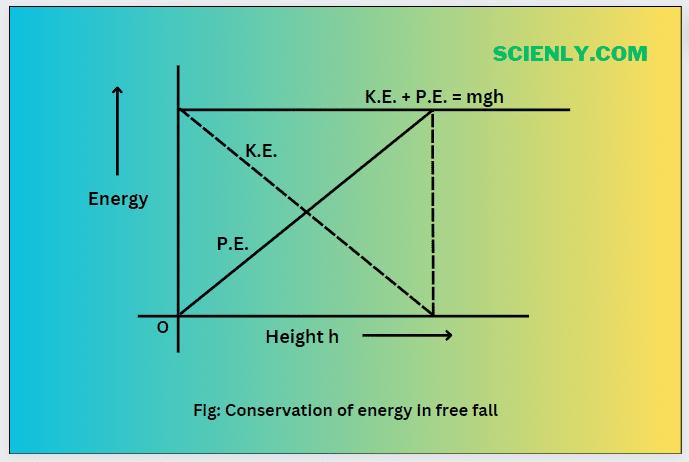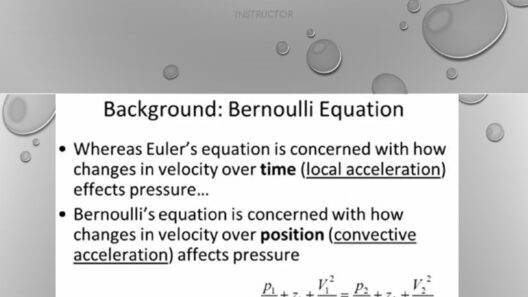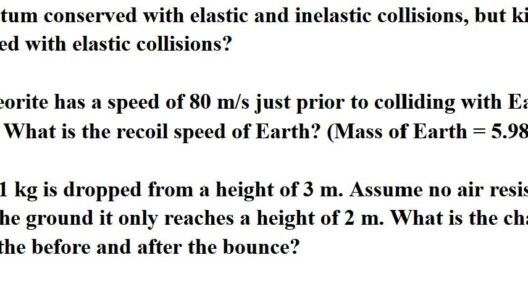The Law of Conservation of Energy is a fundamental principle in physics stating that energy cannot be created or destroyed; it can only be transformed from one form to another. This principle is not merely an abstract concept; it lies at the heart of numerous scientific investigations and applications, from simple machines to complex ecosystems. As one delves deeper into the realms of thermodynamics, quantum mechanics, and energy systems, the discussion often emerges: Has the Law of Conservation of Energy ever been broken? This query bridges science and philosophy, igniting interest and prompting critical reflection.
At first glance, the idea of violating such a foundational law may seem preposterous. This common observation reflects our collective understanding that the universe operates under consistent rules. Since the early days of scientific inquiry, energy conservation has been a bedrock for theories about how natural systems function. However, the fascination lies in the edge cases, paradoxes, and the evolving context of scientific knowledge where the Law of Conservation of Energy seems to be challenged or reinterpreted.
One might start by examining the historical context surrounding this law. In the early 19th century, scientists such as James Prescott Joule contributed significantly to the understanding of energy as a conserved quantity. They conducted experiments that articulated how mechanical energy could be transformed into thermal energy, laying the groundwork for later explorations into energy forms. This foundation prompted questions of nature on the macro scale: If energy is truly fixed, what implications does this have for the universe’s ultimate fate?
When contemplating energy conservation, it is essential to consider not just physical systems, but also philosophical implications. For example, how do we respond to phenomena that appear to utilize energy without a clear source? Take a common scenario often cited in discussions: perpetual motion machines. Throughout history, inventors have endeavored to construct machines that generate more energy than they consume, effectively violating the conservation law. Yet, all attempts have ultimately failed under scrutiny. These failures reveal not only the rigidity of the conservation law but also the motivation behind humanity’s ceaseless quest for efficiency and self-sufficiency. The allure of perpetual motion machines lies in our desire to seek shortcuts in the complex web of nature’s laws.
Further complicating the conversation, one must turn toward cosmology and the fringe of theoretical physics. The Big Bang theory, which posits that the universe started from an extremely hot and dense state, raises questions about energy conservation in cosmic evolution. Some interpretations suggest that the total energy of the universe could be zero, as the positive energy of matter and the negative energy of gravity might balance each other. If this assertion holds, it challenges conventional thinking about energy creation and conservation on cosmological scales.
Moreover, concepts such as dark energy and dark matter introduce layers of complexity. Dark energy is theorized to constitute a significant portion of the universe but remains elusive in practical observation. Its presence may not directly violate the conservation of energy principle but certainly invokes considerations regarding the definitions and manifestations of energy in the universe as a whole. How does one quantify energy when its very nature is shrouded in mystery?
The probe into quantum mechanics further complicates discussions of conservation laws. The behavior of particles at subatomic levels often defies classical intuition. Quantum fluctuations suggest that energy may momentarily appear and then vanish, seemingly undermining the notion of conservation over specified, limited durations. However, when viewed from conventional timescales, energy conservation holds strong. This presents a riveting intersection between observable reality and theoretical predictions, leading to profound implications for our understanding of reality.
In the ecological framework, too, energy conservation plays a crucial role in understanding how ecosystems function. Energy flows through these systems—from sunlight captured by plants to the eventual dispersal of energy through decomposers. The energy captured in one trophic level is transformed and transmitted to another, illustrating the conservation concept in biological terms. While human influence may seem to alter energy flows and outlines of these systems, the laws of thermodynamics remain unwavering. This can be observed in discussions about climate change, where attempts to manipulate energy systems (such as through carbon sequestration) invariably align with the conservation laws, reminding us that systemic transformations will always abide by foundational principles.
Conservation of energy interweaves deeper reasons for fascination—not merely as a scientific concept, but also as a cornerstone of philosophical inquiry. The relentless pursuit of understanding energy dynamics can lead to ingenious advancements in technology, like renewable energy systems, which seek to maximize efficiency and minimize waste. They demonstrate humanity’s capacity to innovate within the frameworks provided by nature’s laws.
Ultimately, the Law of Conservation of Energy stands robust against the tides of speculation and inquiry. Whether through historical explorations, cosmological hypotheses, or quantum mechanics, the energy conservation principle remains a steadfast beacon in the convoluted junction of physics and philosophy. Its constancy amid ongoing scientific discovery shows us that, while our understanding of the universe evolves, certain fundamental principles endure. There is profound comfort in this notion, and while the quest to “break” this law may yield valuable insights into our conceptual limitations, the reality is that energy is destined to be ever-present and transferable, shaping the enduring tapestry of existence.








